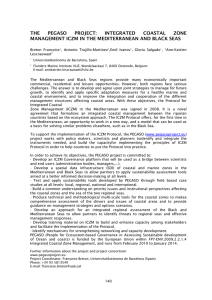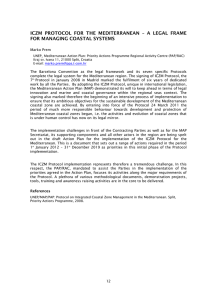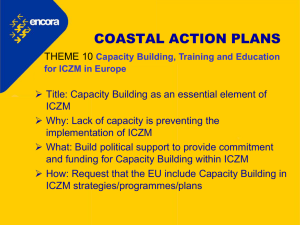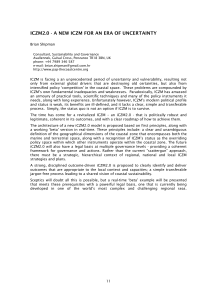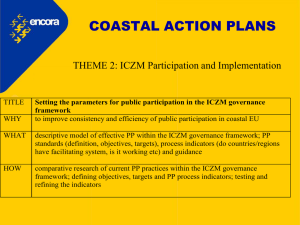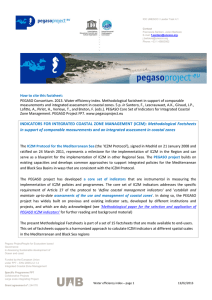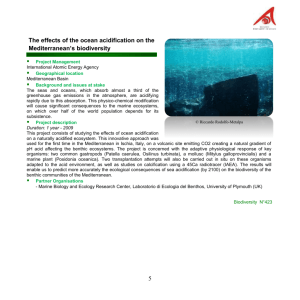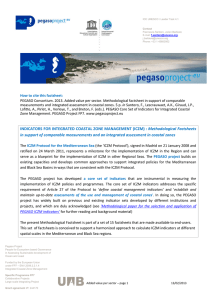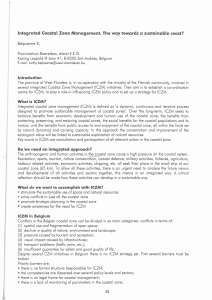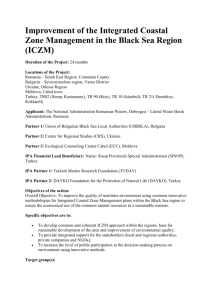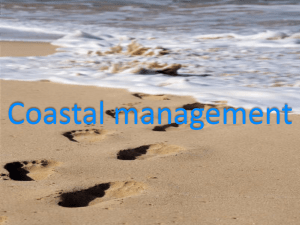DEWA/GRID-GENEVA PROJECT DOCUMENT GNV001
advertisement
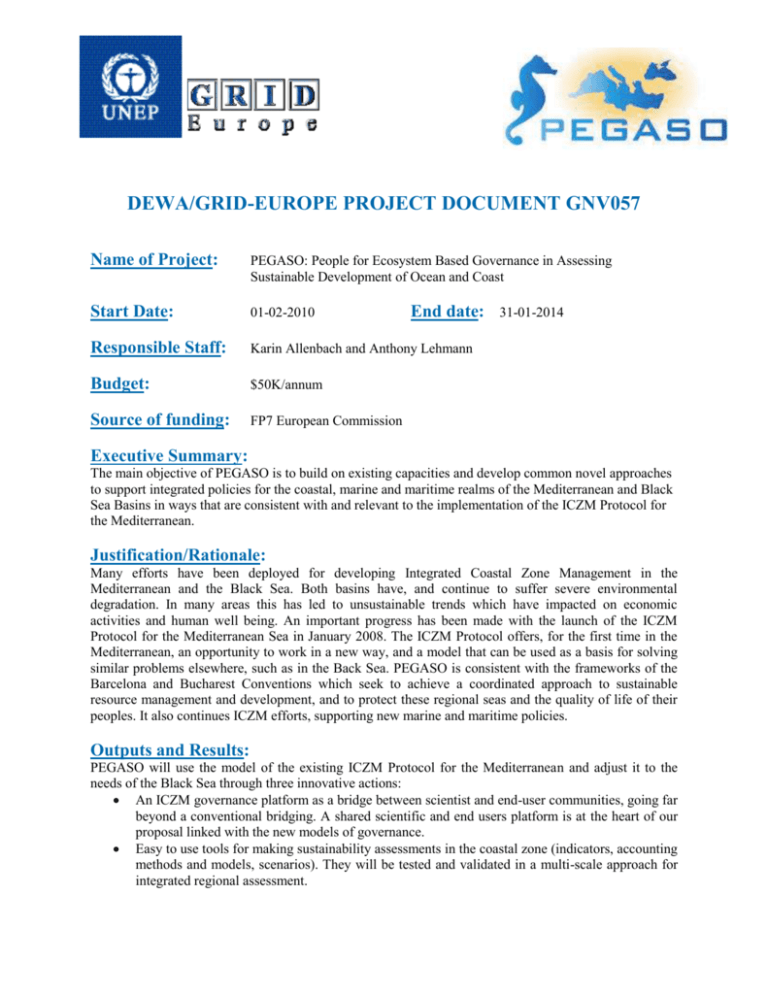
DEWA/GRID-EUROPE PROJECT DOCUMENT GNV057 Name of Project: PEGASO: People for Ecosystem Based Governance in Assessing Sustainable Development of Ocean and Coast Start Date: 01-02-2010 Responsible Staff: Karin Allenbach and Anthony Lehmann Budget: $50K/annum Source of funding: FP7 European Commission End date: 31-01-2014 Executive Summary: The main objective of PEGASO is to build on existing capacities and develop common novel approaches to support integrated policies for the coastal, marine and maritime realms of the Mediterranean and Black Sea Basins in ways that are consistent with and relevant to the implementation of the ICZM Protocol for the Mediterranean. Justification/Rationale: Many efforts have been deployed for developing Integrated Coastal Zone Management in the Mediterranean and the Black Sea. Both basins have, and continue to suffer severe environmental degradation. In many areas this has led to unsustainable trends which have impacted on economic activities and human well being. An important progress has been made with the launch of the ICZM Protocol for the Mediterranean Sea in January 2008. The ICZM Protocol offers, for the first time in the Mediterranean, an opportunity to work in a new way, and a model that can be used as a basis for solving similar problems elsewhere, such as in the Back Sea. PEGASO is consistent with the frameworks of the Barcelona and Bucharest Conventions which seek to achieve a coordinated approach to sustainable resource management and development, and to protect these regional seas and the quality of life of their peoples. It also continues ICZM efforts, supporting new marine and maritime policies. Outputs and Results: PEGASO will use the model of the existing ICZM Protocol for the Mediterranean and adjust it to the needs of the Black Sea through three innovative actions: An ICZM governance platform as a bridge between scientist and end-user communities, going far beyond a conventional bridging. A shared scientific and end users platform is at the heart of our proposal linked with the new models of governance. Easy to use tools for making sustainability assessments in the coastal zone (indicators, accounting methods and models, scenarios). They will be tested and validated in a multi-scale approach for integrated regional assessment. Implementation of a Spatial Data Infrastructure (SDI), following INSPIRE Directive, to organize and standardize spatial data to support information sharing on an interactive visor, to make it available to the ICZM Platform, and to disseminate all results of the project to the end users and interested parties. Clients/end users: The Commission on the Protection of the Black Sea Against Pollution, IUCN, Plan Bleu, UNEP/MAP EU ICZM protocol, etc. Partner agencies: Universitat Autònoma de Barcelona, Universidad Pablo de Olavide, Plan Bleu, Institut Français de Recherche pour l'Exploitation de la Mer, ACRI-EC, IOC-UNESCO, Priority Action Programme / Regional Activity Centre, International Union for Conservation of Nature, University of Nottingham, Flanders Marine Institute, Università de Ca’Foscari, Joint Research Centre, Institut National des Sciences et Technologies de la Mer, Université de Genève, Hellenic Centre for Marine Research, Mediterranean Coastal Foundation, Danube Delta National Institute for Research and Development, Université Mohammed V Agdal, AREA-ED, National Institute of Oceanography and Fisheries, University of Balamand, Marine Hydro-physical Institute, La Tour du Valat, National Authority for Remote Sensing and Space Sciences, The Commission on the Protection of the Black Sea Against Pollution Timeline: 2010-2013 www.pegasoproject.eu
